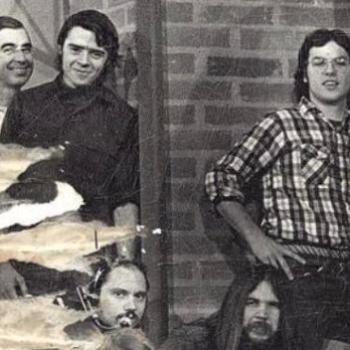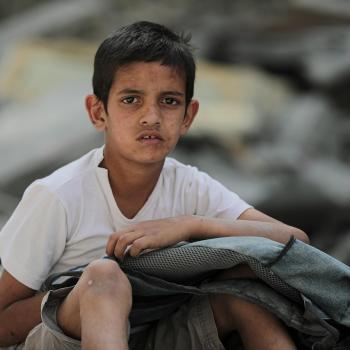The events of September 11, 2001 invite comment from spiritual leaders. But they also invite oversimplification.
One brand of oversimplification indulges in an unreflective, categorical demand for vengeance. The other brand of oversimplification wallows in angst-ridden apologies for having somehow precipitated the events of that terrible day. Both alternatives are morally and spiritually problematic—resolving the terrible calculus of the murders committed in New York, Washington, and Pennsylvania into simple, measurable choices that are equally misleading.
Strangely, both extremes deny the evil of the deed committed on that day: The demand for categorical vengeance assigns the capacity for evil to others, assuming that we could not possibly act in kind. In apologizing, others refuse to acknowledge the reality of evil and the willfulness of the choices made by the terrorists, implying that if we had only been more sensitive or reasonable, they would not have done what they did.
We cannot lead with moral and spiritual integrity from either extreme. Blind vengeance and a self-effacing, therapeutic flight from the reality of evil may be easy places to live, but it is only the commitment to justice, tempered by attention to the potential for evil in all of us that can ground our efforts to listen for God's guidance in complex times. The desire to erase the complexities and the fear of responding to evil is understandable, but they are also symptomatic of spiritual malaise and poverty.
Karl Menninger wrote Whatever Became of Sin? in 1973, and it continues to be rediscovered by younger readers from time to time who read it (understandably) as if they had discovered a long-buried time capsule. But his book marks the perceptive notice of the quiet disappearance of language for a phenomenon all around us.
It is not surprising, then, to discover in a truly fine essay entitled, "Simply Evil," that atheist-essayist Christopher Hitchens describes the events of September 11 as "vertiginous," or that he observes,'"for the first time in my life" I found myself "sharing the outlook of soldiers and cops." In a society that loses its capacity to talk about evil, "soldiers and cops" are assigned the responsibility to confront and deal with a reality that we are unwilling to acknowledge. So when we are forced to recognize its presence all we can do is cross-reference their experience.
More seriously, however, we also lose the moral and spiritual authority to call for action. Rightly Hitchens observes that "The proper task of the 'public intellectual' might be conceived as the responsibility to introduce complexity into the argument: the reminder that things are very infrequently as simple as they can be made to seem," but he also "learned in a highly indelible manner from the events and arguments of September 2001 was this:'Never, ever ignore the obvious either." To insist that we also listen to the simple narrative in events like 9/11, however, is hardly the stuff of moral imperative.
That is, no doubt, why so much said in the pulpits of our country a generation ago was of little help to World War II veterans. It is also why so little said this last Sunday is likely to be of value to first responders and the veterans of recent wars. To come home to fellow countrymen who refuse to acknowledge the existence of evil must be very hard for those who have been forced to face it.
I am pessimistic about recapturing the vocabulary of evil in an environment that has little or no reason to embrace the assumptions that lie behind it. But the church is obliged to embrace them. It might also be the one, concrete action that any and every Christian can take in reaction to the events of 9/11.
What Muslims have rightly criticized in western culture is that it is spiritually flaccid and self-indulgent. The churches of Europe are empty. While they are not as empty in the United States as they are in Europe, Christians here often live remarkably dissolute and directionless lives that are not easily distinguished from the lives of those around them. We are without discipline. We live as if our faith in God doesn't matter. And in our desire to not be thought of as fundamentalists we have crafted churches that are a studied attempt to avoid deep commitment.





